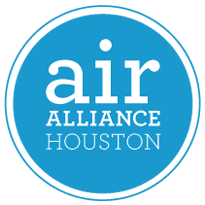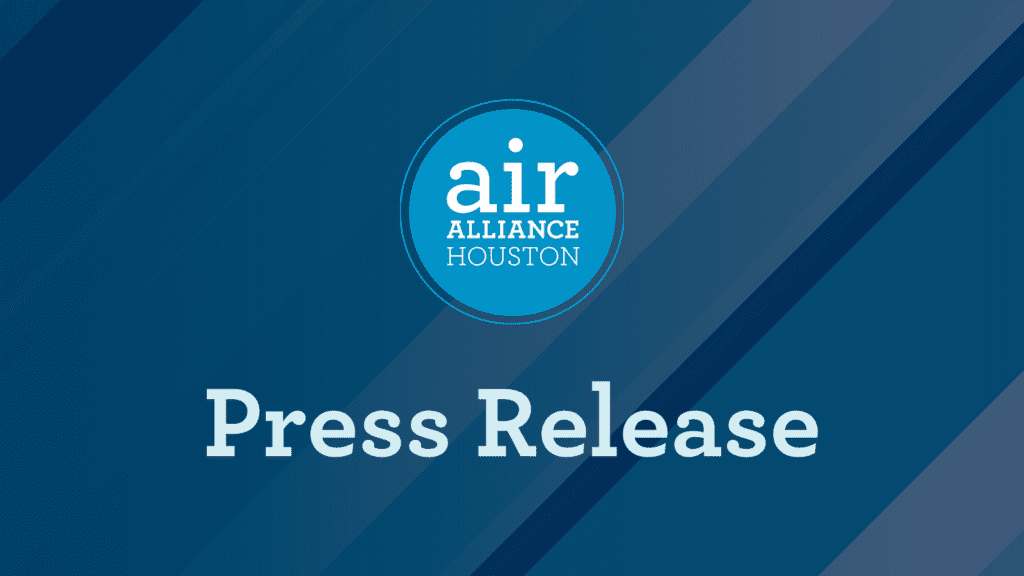Media contact: Cassandra Casados-Klein, 713.623.1457, cassandra@airalliancehouston.org
Note: while we cannot comment on the controlled discharge of wastewater from the facility, we can make a referral to a local expert/spokesperson.
HOUSTON – Shell Chemical released its first and only report so far on the air toxics emissions from the facility fire that burned for three days beginning last Friday. This report comes days after the event began and contains no meaningful information.
“The community deserves better than this,” says Jennifer Hadayia, Executive Director of Air Alliance Houston. “Now three days after the fire began, we have little to no confirmed information about what was and is being emitted into the air, and now into our waterways.”
TCEQ released reports of its targeted air monitoring activity over the weekend: they measured for levels of multiple carcinogens used in petrochemical production including benzene, 1,3-butadiene, styrene, toluene, and xylenes. Exposure to these chemicals have real health effects.
While we are pleased that air monitoring was conducted, history has shown that TCEQ may not be using air toxic exposure standards that are scientifically up-to-date and protective of public health. For example: according to a report by Houston-area scientists, the protective level of benzene is 27 parts per billion in two consecutive hourly readings. TCEQ is using a much higher level in their current monitoring. The same can be said of their levels for other volatile organic compounds (VOCs).
Says Hadayia, “it’s impossible not to draw comparisons to the response to the ITC fire in 2019, which followed a similar pattern. Then as now, we’re told that there are no health concerns, but this is cold comfort for community members who were misled by regulatory officials back in 2019. Continuing to keep community members in the dark about what was emitted for the last 3 days benefits the petrochemical industry and not public health.”
The mistakes of the past cannot be repeated. Industry and regulatory officials must be transparent about what has been released into the air and its implications for health. Not only must air monitoring continue, but the standards used to determine levels of concern must be scientifically up-to-date and protective of public health.
About Air Alliance Houston
Air Alliance Houston is a non-profit advocacy organization working to reduce the public health impacts from air pollution and advance environmental justice through applied research, education, and advocacy. For more information and resources, please visit www.airalliancehouston.org.
Previous statements on the Shell Deer Park explosion

